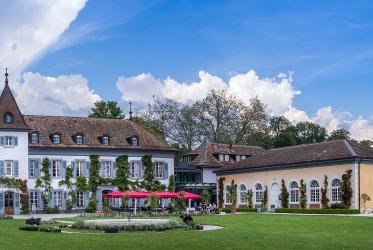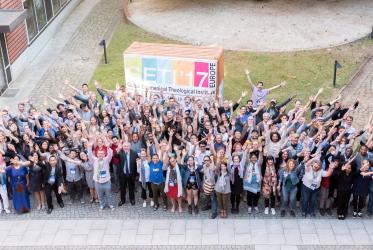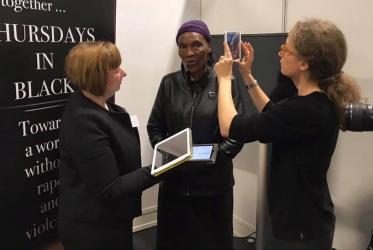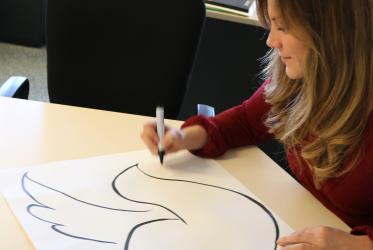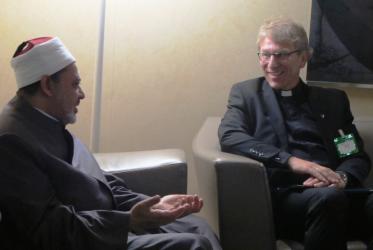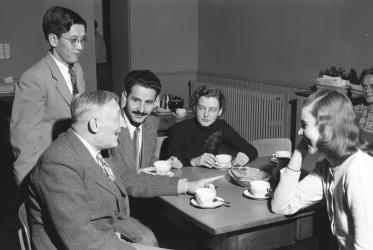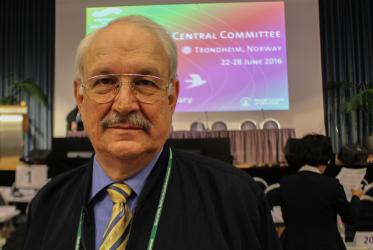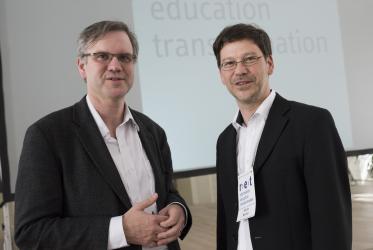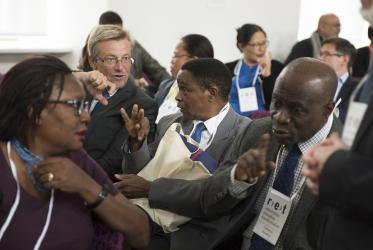Displaying 61 - 80 of 105
École GEM: comment concilier théologie et économie
05 September 2017
"We have our work cut out for us"
10 August 2017
WCC students study what makes a peace communicator
18 July 2017
Nigerian breaks down stereotypes on Muslims
13 July 2017
“We are to pass on the mantle”
31 May 2017
How do you say “peace?”
20 February 2017
Comment dites-vous «paix»?
20 February 2017
WCC hosts discussion on religious radicalisation
13 December 2016
Dialogue flourishes between WCC, Muslim Council of Elders
30 September 2016


